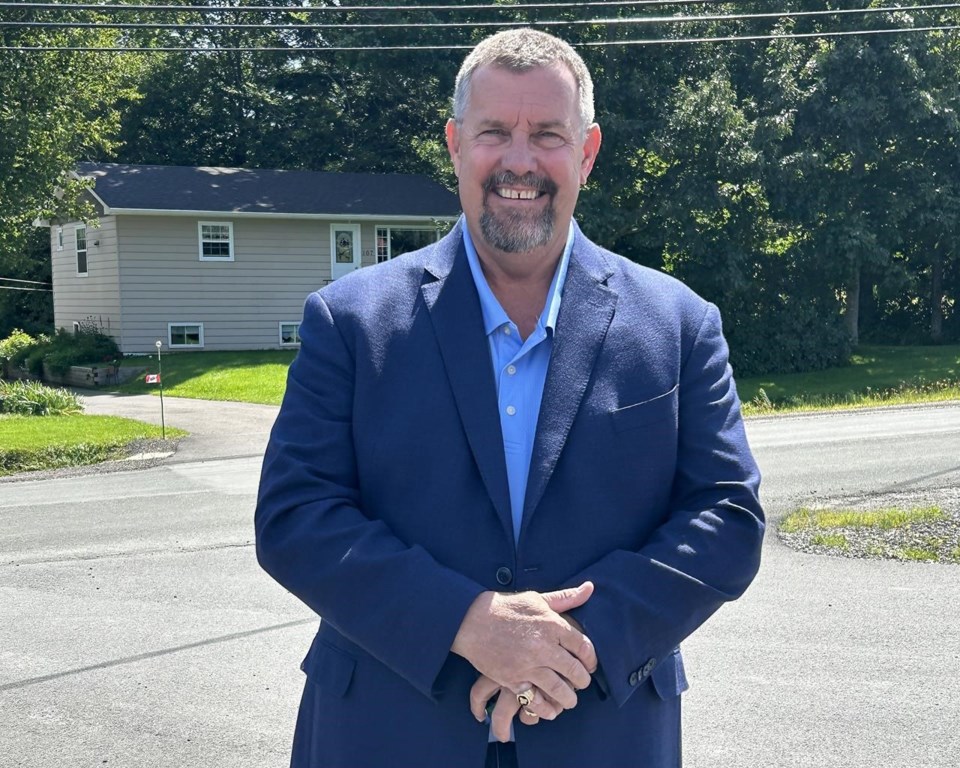FREDERICTON — New Brunswick is maintaining the central elements of its policy on sexual orientation and gender identity in schools despite a report saying the policy violates the Charter rights of children.
Education Minister Bill Hogan told reporters Wednesday his government tweaked Policy 713 to give it clarity, following last week's critical report by the child and youth advocate.
But the main thrust of the policy stays the same: students under 16 who are questioning their gender identity must get their parents' consent before teachers can use their preferred first names or pronouns at school.Â
"Otherwise, what we're saying is that we're keeping information from parents and that's not the role of the school," Hogan said Wednesday.
The province made three changes to Policy 713 in June, one of which requires children under 16 to have parental consent before they can officially change their preferred first names or pronouns at school. The changes sparked widespread criticism, including from Prime Minister Justin Trudeau.Â
Child and youth advocate Kelly Lamrock said last week that forcing nonbinary and transgender students to use a name they don't identify with is a violation of their Charter rights.
In response, Hogan said the province would change the policy to add "clarity." The education minister said that school professionals, such as psychologists and social workers, will now be permitted to use the preferred names and pronouns of children under 16 without parental consent.Â
"Professionals such as guidance counsellors, psychologists, and social workers can use preferred names when supporting students under 16," he said.Â
However, Hogan said the use of names in classrooms will be considered "formal" and that teachers will not be given the same latitude when addressing students. The policy changes made in June, he said, will continue for teachers, who will not be allowed to use the preferred names and pronouns of kids under 16 without consent from their parents.
The classroom is considered a "public forum," while talking to a counsellor is considered private, the education minister said, adding that parents should be involved in every aspect of their young children's education.
"I think having parental involvement in education is a national issue," he said. "It's clearly more than just that — it's an international issue. I mean, most people believe that parents have an active role to play in their child's education."
Other provinces have taken notice of New Brunswick's position. On Tuesday, the Saskatchewan government said teachers must start seeking parental consent when children under 16 want to change their first names or pronouns.
New Brunswick Green Leader David Coon said the revised Policy 713 announced Wednesday is in violation of the child and youth advocate's recommendations.
"We all want our kids to be safe, we want them to be respected, we want them to be proud of who they are, and we want them to be free to be themselves," he said. "These changes don't allow that to happen. It's essentially the status quo."
The policy, Coon said, appears to be targeting LGBTQ students and their families.
"Why they're singling out those students is beyond me. It doesn't make any sense."
Liberal Leader Susan Holt said it was "deeply concerning" that the government disregarded the legal advice given by Lamrock.
She said Hogan is essentially saying to the public, "Well, sue us. If you don't like what we're doing, take us to court. That's disrespectful," she said.
"It shows that this government does not care about following the law or protecting children. They have put children and parents and teachers in a terrible position."
Lamrock's office did not return a request for comment on Hogan's announcement.Â
This report by The Canadian Press was first published Aug. 23, 2023.Â
Hina Alam, The Canadian Press


.png;w=120;h=80;mode=crop)

